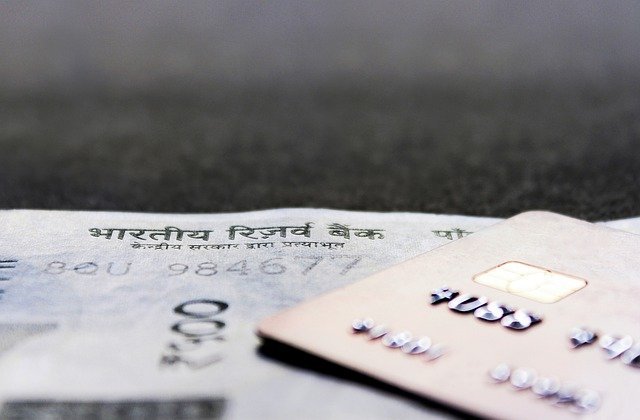credit-repair
Bad Credit? You Can Start Fixing It
If your credit is bad, you can find it difficult to make some of the more basic financial decisions in life, such as car loans or home loans. Credit rating will fall based on unpaid bills or paying fees too late.The advice in this article can help you get on track with repairing your less-than-desirable credit score.
Financing homes can be difficult if you have bad credit. If possible, which has lower standards and makes the federal government your lender in a sense. FHA loans are ideal for those who cannot afford the money to make a down payment that most banks require.
Planning is the first step to repairing your credit. Be totally committed to changing your spending habits. Stick to the essentials, and avoid frivolous purchases at all costs. See if each purchase is necessary and affordable and only purchase something if the answers are “yes”.
If you have credit that is not high enough for you to obtain a new credit line, applying for a secured credit card is an option. If you get a new card and use it responsibly, your credit rating will begin rising.
You can keep your interest rates by maintaining a favorable credit rating. This will make your monthly payments easier and it will enable you to repay your debt much quicker.
The higher your credit score, the lower the interest rate that you can obtain will be. Lower interest rates make it much easier and quicker to pay off balances. Get a good offer along with good rates, and you’ll have credit that you can pay off easily, and improve your credit score.
Interest Rates
You can dispute inflated interest rates.Creditors are skirting a fine line of the law when they try to charge you with high interest rates. You did sign a contract and agree to pay off all interests as well as the debt. You may wish to make a legal claim that the interest rates are too high if you want to sue your state’s statutory limits.
With a good credit score, you can easily buy a house and mortgage it. Paying mortgage notes on time will keep your credit scores high. Owning a home provides financial stability which is backed by your asset, the home, and as such, results in great credit. Having a good credit score is important if you need to take out a loan.
You should consider talking to directly with the companies from whom you have credit cards. This will assure them that you to make sure to keep your debt and repair any damage that may have been caused.
Even if the item itself is correct, any problems with its details, date, or something else can cause the entire item to be stricken from your report.
Negative-but-correct information cannot be removed from your credit report, so be wary of promises from unscrupulous companies who promise to remove it from the credit reporting agencies. Unfortunately, this negative information stays on your credit record for at least seven years. Incorrect information may be erased though.
Joining a credit union may be a great way to boost your credit if you are having a difficult time getting credit.
Dispute every error you identify on any of your credit reports.
The first step to repairing your credit is paying what you owe. You should always make an effort to pay your bills on time and in full. Your credit rating will quickly rise as you settle up your overdue bills.
Do not spend beyond your means. This might be a tough thing to get your thinking. In the not too distant past, people used good credit ratings to buy the items that they normally couldn’t afford, but now those risky financial choices are catching up with them. Be sure to assess your finances and find out the things that you can truly afford.
Take the time to ensure each month’s credit card bills to make sure that every item is one you have charged. If you spot any mistakes, you have to make sure that you take care of them immediately with the company so that they don’t send that information to the credit bureaus.
An important tip to consider when working to repair your credit is to work closely with your credit card companies. By keeping the lines of communication open, you will avoid getting into more debt, making your credit score even worse. Politely ask if it is possible to have your minimum monthly payment adjusted or due date changed.

If you work out a payment plan with a creditor, be sure to get it in writing. Once it is paid off, be sure to send that information to the credit agencies in writing.
Pay the balances on all credit cards as soon as you can. Pay down your cards that have the highest interest rates first. This action will show creditors that you are being responsible about your credit cards.
Before you sign any debt settlement, research what effects it will have on your credit score. Some debt settlements are better than others. Do your homework and find out how your score will be impacted before agreeing to anything. Creditors just want their money and really aren’t interested on how it will affect your score.
Lowering the balances you carry on any currently revolving accounts will increase your credit score. You can improve your score by just keeping your balances.
The statement will do is draw more attention to negative reports on your credit history.
The first step in repairing your credit involves a thorough and careful check to ensure your credit report doesn’t contain erroneous information. Errors are not infrequent in credit reports. If you can prove the credit bureau is in the wrong, they should correct the reported error or remove it entirely.
Credit Score
Don’t fall prey to law offices that promise they can immediately fix your credit score. Since there so many people struggling with their credit today, predatory lawyers emerged that charge huge fees to repair their client’s credit in ways that are either illegal or useless. Do the research on any lawyer advertising credit score improvement services before you call them.
Check your credit card statement each month and make sure there aren’t any discrepancies. If there are, you will need to contact the company immediately to avoid them reporting this to a credit reporting agency,
A terrible credit crunch can generally be caused by lacking the funds to pay off multiple debts. Making payments, even just minimum ones, avoid ending up with collection agencies.
Prepaid credit cards can help to rebuild your score without late payments or going over your limit.This will make you are serious about taking responsibility for your financial future.
If a creditor agrees to give you a payment plan, get that payment plan in writing. Any plan that you agree on should be put in writing and signed by both parties to protect you in the future. Once it is paid off, you should get that in writing to send to the credit reporting agencies.
Talk to creditors directly if you cannot make monthly payments.
Creditors compare the proportion of your debt to your income. You will be looked at as a greater credit risk if your debt is too much for your income to handle. You don’t have to pay it all at once, just get a plan and stay with it to pay off your debt over time.
Bankruptcy should be a last resort. Doing so will reflect upon your credit score and report for 10 years. You may think that bankruptcy is your only option to rid yourself from debt, however look at your long term financial goals before deciding to file for it. It may be hard to get a credit card or a loan if you declare bankruptcy.
Anyone who ever needs a loan is impacted by how high or low their credit score is. The tips in this article can help you, even if you have a low score and massive debt.


